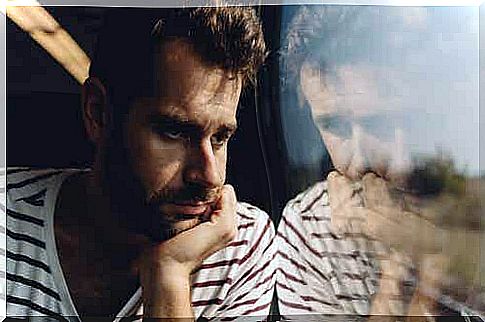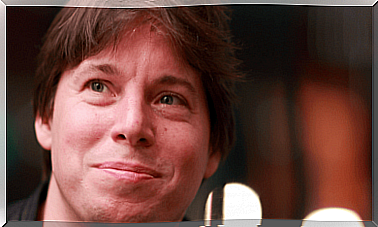Interior Language According To Vygotsky

Inner language has been an object of study since the beginning of the history of philosophy. It is a subject that one of the most important authors of Western psychology, Vygotsky, explored.
The thought of this author completely changed the conception of the human psyche. He thus focused on language, with a particular interest in the development of affects and the systemic understanding of the psyche.
Vygotsky was an author of great intellectual vitality. In addition to presenting his proposals, he tried to discuss the implications they might have. The debate that Vygotsky had with Piaget on the subject of egocentric language and other themes that we will see a little later is well known.
From “exterior language” to “interior language”
Vygotsky’s explanation of inner language is based on the existence of three different forms of expressing a speech. The first is the external speech or social speech, then we have the egocentric or private speech and, finally, the internal speech. Feigenbaum refers to it:
So it would seem that, for Vygotsky, inner language is speaking silently to oneself. It sounds like language without sound, sub-vocalized speech or, as he states in his latest work, verbal thought.

Inner language for Vygotsky
The author defines inner language as a special training at the level of our psychological nature. It is, for Vygotsky, a special form of verbal activity, with its own characteristics, and which maintains a complex link with other forms of verbal activity.
Vygotsky explains that there is a difference between talking to yourself and talking to others. Inner language is the language that addresses oneself while the outer language is the one we use to address ourselves to others.
It seems obvious that this radical and fundamental difference between the functions of the one and the other has consequences on the structural nature of the two verbal functions. It’s not just about vocalization.
For Vygotsky, the presence or absence of vocalization does not explain the psychological nature of internal language. On the contrary, it explains the consequence which arises from this nature.
The inner language does not come only from the outside: it is opposed to it. External language is the process of transforming thought into word, according to the author. It is also its materialization and its objectification. Inner language, on the other hand, is a process that goes from the outside to the inside ; a process of evaporation of language into thought.

Its expressive dimension
The expressive dimension of language is also manifested in inner speech. Nevertheless, and this is quite logical, the subject is both sender and receiver of the message. The phenomenon therefore maintains the character of a monologue.
Vygotsky points out that inner language makes more sense. It stirs up all aspects of consciousness related to this idea, and this experience in itself does not have a dialogue nature: it is holistic and comprehensive.
This is linked to one of the characteristics of inner language according to Vygotsky: since the subject is both sender and receiver, in internal language the subject is eliminated and the predicates are maintained, since the person knows the subject of its predicate.
To sum up, from Vygotsky’s point of view, inner discourse is monological. In a way, the expressive dimension of inner language constitutes a manifestation of the deepest states of consciousness.
Thus, inner language arises in Vygotsky’s theory thanks to the cross-functional link between thought and language. The majority of our thoughts would take shape through the union of words, and this is the key aspect of inner language according to Vygotsky.










